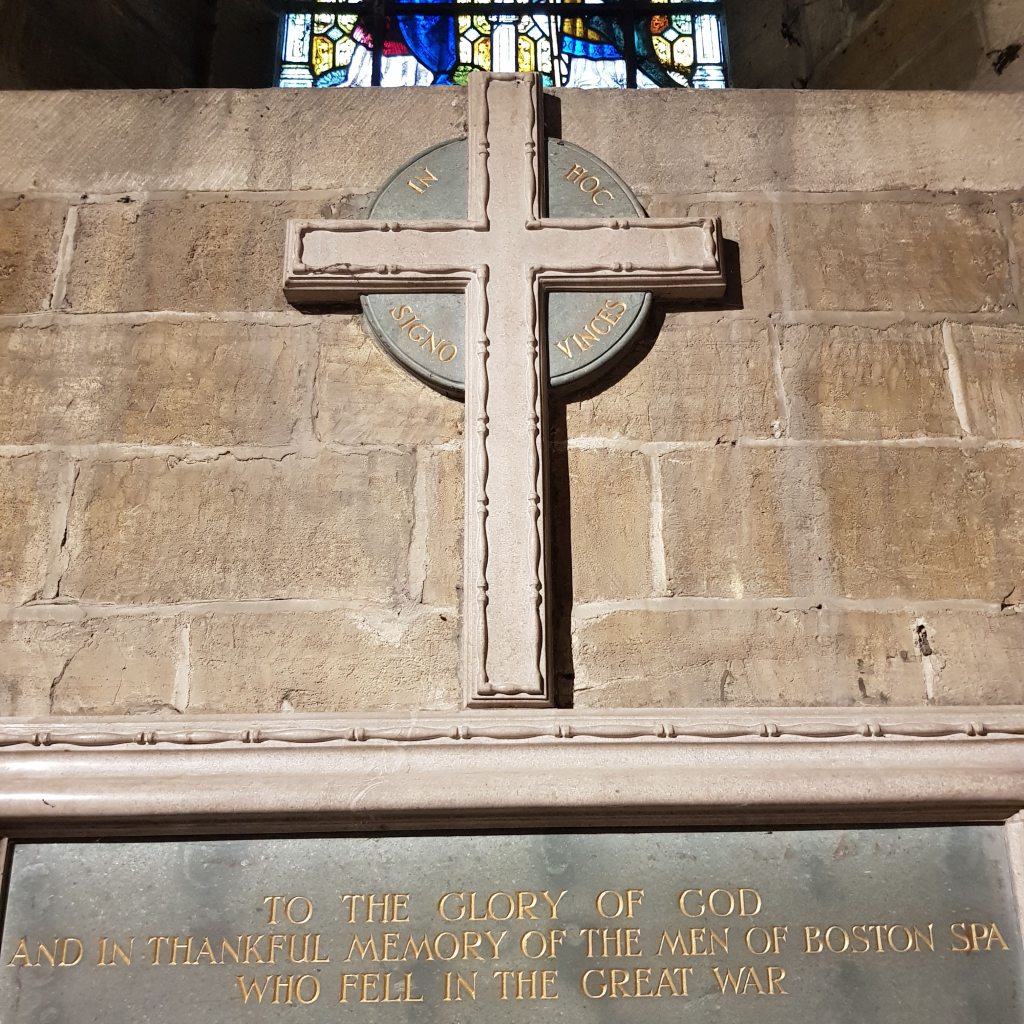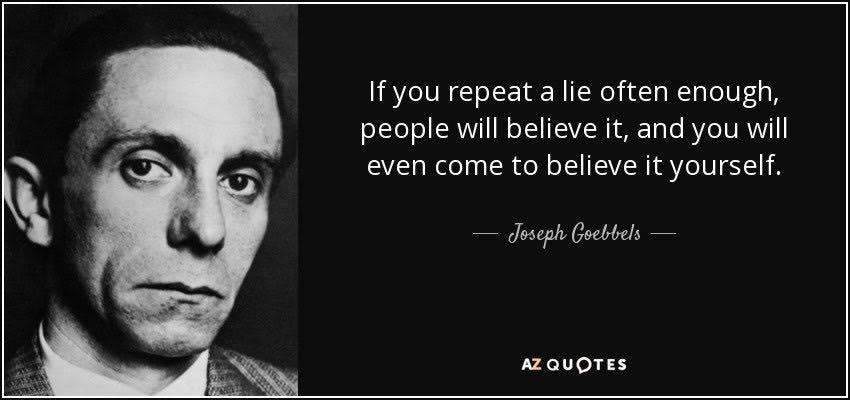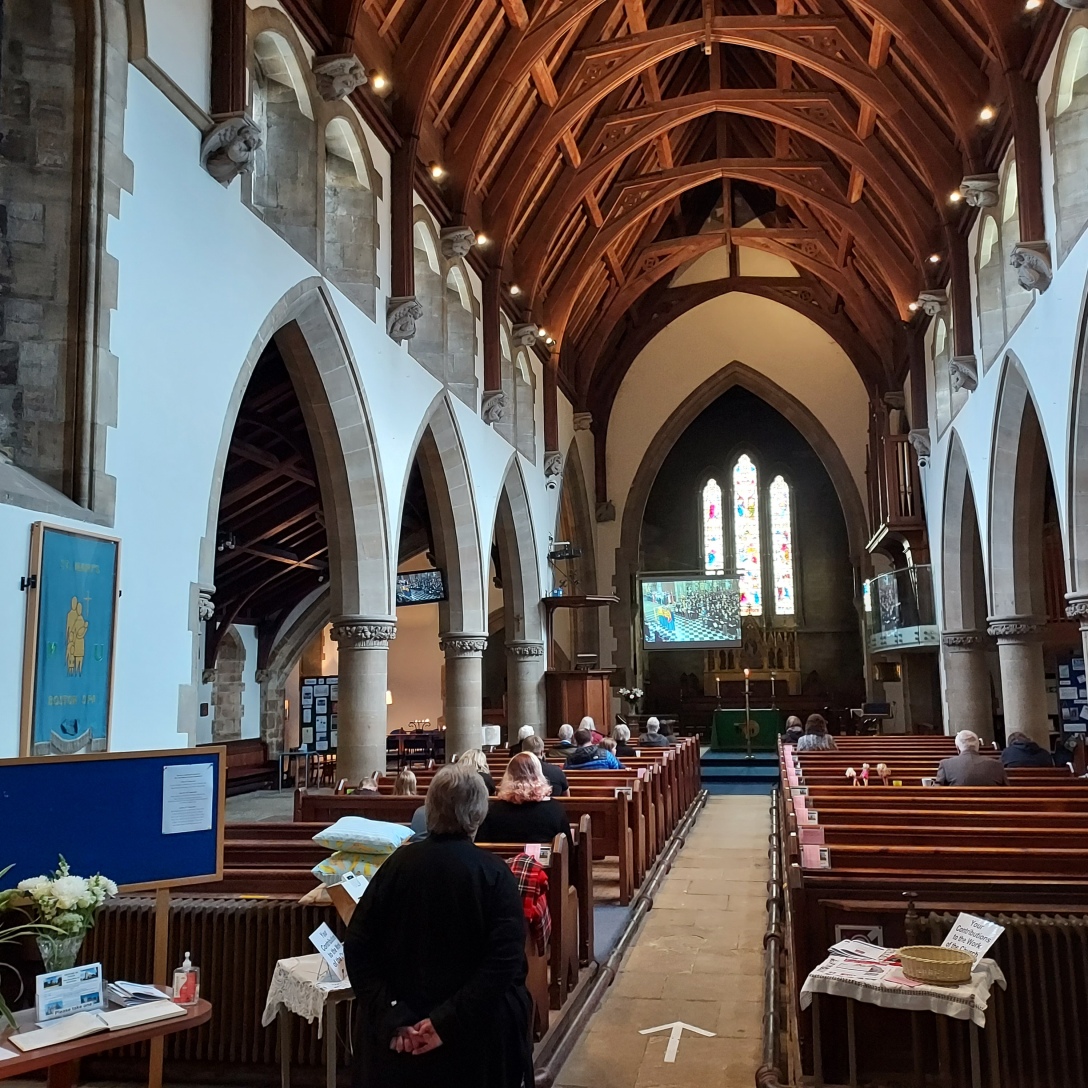One thing after another
Tag: boston spa
On the morning of Her Majesty’s Funeral
Just as we are called to abide in the love of Jesus, just as Jesus abides in the love of God the Father, so must the world abide in our love.
A sermon given on Remembrance Sunday, 2019 – St Mary’s Church, Boston Spa
Readings: Revelation 21:1-7 John 15:12-17

Today we pause for two minutes’ silence marking the Armistice, the end of the Great War, and gather all around the country and the commonwealth in remembrance of those who in two world wars (and in subsequent wars and conflicts) have paid the ultimate price for peace, as well as those whose lives, bodies and minds have been dramatically changed through their service in our armed forces. It is right and proper to look back with gratitude to those who lost their lives in conflicts. Some of you here today may have very personal reasons for doing so, and it is our honour to stand alongside you as you remember friends, comrades, and perhaps family members. You are not alone: we will remember, with you.
That is one aspect of Remembrance Sunday which will be focused upon later in this service, and again at the village war memorial, and it is a crucial aspect. But there is another, and that is to reflect on the sins of the world (that is to say, the many reasons for war and violent conflict), and to commit ourselves to peace. We cannot ever become so comfortable or complacent that we take peace for granted, either internationally, or even within our own nation. It is part and parcel of the human condition that nations “furiously rage together” as the Psalmist puts it.

Often this is the result of worldviews being in conflict: of opposing visions of the future. Visions in which national boundaries are defined in different ways; or how political settlements between regions, or nations are envisaged. Differing visions of access to resources; visions of different religions dominating politically – though this is statistically much rarer as a cause of war than one is often led to believe. The way we see the world, our vision of what the future ought to hold, is important. It is the job not only of politicians, but of all of us, to keep our eye on the ball: to look not only at the international situation, but also to look at our own nation with a self-critical eye and question where our future lies – to question our vision of ourselves and our own country.
The current General Election campaign brings this into sharp focus, and we should be questioning those who would have us vote for them, and indeed question ourselves: what is our vision for the future of our country? And we need to question ourselves honestly, because the vision which emerges in a society comes from within us: it comes from the human heart. George Orwell, in his essay “Freedom of the Park” (in 1945) wrote this: “…the relative freedom which we enjoy depends on public opinion. The law is no protection. Governments make laws, but whether they are carried out, and how the police behave, depends on the general temper of the country. If large numbers of people are interested in freedom of speech, there will be freedom of speech, even if the law forbids it; if public opinion is sluggish, inconvenient minorities will be persecuted, even if laws exist to protect them.” These remain, sadly, prophetic words. Where are our hearts leading us? What is our vision?

This is about the values which inform and underpin our communal life as human beings who have to share the world and its resources. If those are not God’s values, not God’s vision, then true peace will not reign on earth. As Jesus said to Pilate at his trial “My kingdom is not of this world.” So, when we look to visions of God’s Kingdom in the Bible, we are not reading a political manifesto, but we are getting a glimpse of what the eternal Kingdom of God will eventually look like. John the Divine, who wrote the Book of Revelation which we heard from in our first reading, tells us about the world being recreated as its maker intended. It’s a vision of God’s rule: a new creation in which the nations of the earth are no more and are replaced with God’s holy city: a new Jerusalem coming down from heaven. God’s holy city is something we are called to look towards: a far bigger vision than any national vision. And if our churches, our village, our nation and our world is to gain that vision, the hearts of people need to be turned towards God. Seeing ourselves in our proper perspective, with humility before the authority of God – that is what is needed.

Often, conflict is the result of human vanity and arrogance. The Bible’s vision is of humanity knowing that God is the only true authority and placing itself under God’s rule. If all humanity had God’s heart and saw the world through God’s eyes, there would be no wars.
We are called to abide in the love of Jesus, just as Jesus abides in the Father’s love. We are called to love one another as Jesus has loved us – even to the point of laying down his life for us. That is the vision we aspire to.

Every nation is led by the vision its people allow to flourish. Where a nation has a flawed or evil vision, God’s people are called to challenge it. We are all led by what lies in our hearts, and if we are serious about wanting peace in the world, we should start by asking God to change our own hearts by inviting Jesus into our lives to transform us by the power of the Holy Spirit. You, me, us. Abiding in the love of Jesus.
Our vision needs to be big. Massive. A world vision to match God’s. A vision which unfolds locally, here in Boston Spa. A vision which starts in each of our hearts, but which looks outward, and spreads generously, lavishly, just like God’s love. Just as we are called to abide in the love of Jesus, just as Jesus abides in the love of God the Father, so must the world abide in our love. That is the legacy we should seek for those who have given their lives in the service of our nation in the hope of peace: that we become people, and are part of a nation and international community which walks in God’s ways and abides in God’s love. God’s generous, lavish love. May peace and love flourish among us. Amen.

